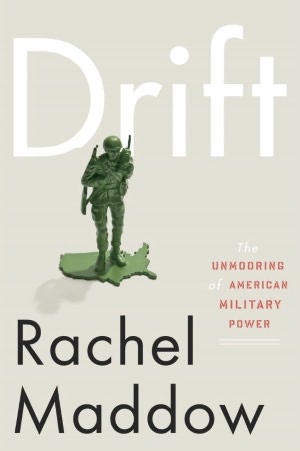Much of this story will be familiar to those who have read Richard Kluger’s Ashes to Ashes, Stanton Glantz’s The Cigarette Papers, and Allan Brandt’s The Cigarette Century. But what makes Golden Holocaust so valuable is that in the years since those fine books appeared, advances in computing and optical scanning have made the tobacco industry’s once-secret archives of memoranda, scientific studies, and outright chicanery freely available. One can now type in any search term into this massive database, and so Proctor has been able to drill this quarry deeper and wider. The result, in Proctor’s hands, is a forcefully written and genuinely alarming tour de force of history, public health, and muckraking.Less historical, but just as provocative: The End of Race? Obama, 2008, and Racial Politics in America (Yale University Press), by political scientists Donald R. Kinder and Allison Dale-Riddle. The review is here.
Law professor Dale Carpenter's Flagrant Conduct continues to make the rounds (see our earlier coverage here). This week, Michael O'Donnell reviews it, here, for the Nation.
 Also in the Nation, Richard J. Evans covers The Taste of War: World War II and the Battle for Food (Penguin Press), by Lizzie Collingham. Here's a snippet of the review:
Also in the Nation, Richard J. Evans covers The Taste of War: World War II and the Battle for Food (Penguin Press), by Lizzie Collingham. Here's a snippet of the review:The combatant nations of World War I learned through logistical error and terrible suffering the importance of securing adequate food supplies in a prolonged armed conflict. Not least as a result of this experience, as Lizzie Collingham shows in her superb new study The Taste of War, these same nations went to considerable lengths to keep their armies and civilian populations alive and well fed during World War II.Jennifer Siegel offers another perspective here, in the Wall Street Journal.
Also in the WSJ, a review of The Lady and the Peacock: The Life of Aung San Suu Kyi (The Experiment), by Peter Popham. It is "by far the best book yet written on [Myanmar's] elusive heroine."
 In the New York Times, you'll find coverage of Drift: The Unmooring of American Military Power (Crown Publishers), by political commentator Rachel Maddow ("a sustained, lucid" argument, written "in a crisp, sometimes too-smart-alecky style") (here), and Enemies: A History of the FBI (Random House), by journalist Tim Weiner ("important and disturbing," according to the review). Enemies is also reviewed this week in the Guardian, here.
In the New York Times, you'll find coverage of Drift: The Unmooring of American Military Power (Crown Publishers), by political commentator Rachel Maddow ("a sustained, lucid" argument, written "in a crisp, sometimes too-smart-alecky style") (here), and Enemies: A History of the FBI (Random House), by journalist Tim Weiner ("important and disturbing," according to the review). Enemies is also reviewed this week in the Guardian, here.In the London Review of Books, subscribers may enjoy reviews of Philip of Spain, King of England: The Forgotten Sovereign (I.B. Tauris), by Harry Kelsey (here), and The Dark Defile: Britain’s Catastrophic Invasion of Afghanistan 1838-42 (Walker), by Diana Preston (here). John Lanchester's essay on "Marx at 193" is open access, here.
